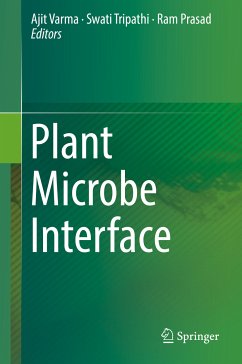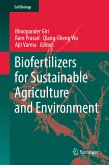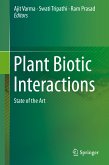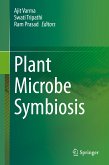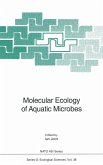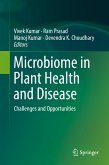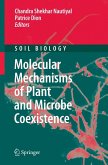In their natural environments, plants are surrounded by a tremendous number of microorganisms. Some microbes directly interact with plants in a mutually beneficial fashion, while others colonize plants solely for their own advantage. In addition, microbes can indirectly affect plants by drastically altering their environments. Understanding the complex nature of the plant-microbe interface (PMI) can pave the way for novel strategies to improve plant productivity in an eco-friendly manner.
The PMI approach focuses on understanding the physical, molecular, and chemical interactions between organisms in order to determine their functional roles in biological, physical, chemical and environmental systems. Although several metabolites from plants and microbes have now been fully characterized, their roles in chemical interactions between these associates remain poorly understood, and require further investigation.
Dieser Download kann aus rechtlichen Gründen nur mit Rechnungsadresse in A, B, BG, CY, CZ, D, DK, EW, E, FIN, F, GR, HR, H, IRL, I, LT, L, LR, M, NL, PL, P, R, S, SLO, SK ausgeliefert werden.

